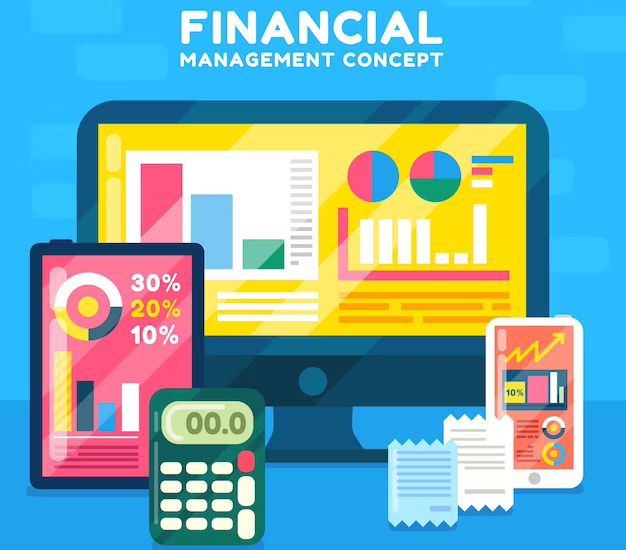DIPLOMA IN FINANCIAL ACCOUNTING
DIPLOMA IN FINANCIAL ACCOUNTING
Description
The Diploma in Financial Accounting program provides a strong foundation in financial accounting concepts, principles, and practices to students. This comprehensive course covers accounting equations, journal entries, ledger accounts, financial statements including balance sheets, income statements and cash flow statements as well as the essential aspects of management accounting. Students learn how to use computer software such as QuickBooks that can help them prepare financial reports efficiently. Upon completion of this diploma program, students gain an understanding of basic accounting concepts and skills that they can apply to various business scenarios. They also develop skills like critical thinking, problem-solving and attention to detail which are significant for improving their job prospects. Thus it equips learners with the necessary skills required for pursuing a career in the fields of finance or accounting or start their own enterprise successfully.

ADVANTAGES OF DIPLOMA IN FINANCIAL ACCOUNTING
- Increased Job Opportunities:A Diploma in Financial Accounting provides individuals with the necessary skills to work in the accounting and finance sector. With the increasing demand for qualified professionals in this field, completing this diploma can enhance your job prospects and increase your chances of finding a job in various fields, including accounting, finance, and bookkeeping.
- Improved Financial Management:Understanding accounting and finance principles is essential for effective financial management. With this diploma, individuals can gain a better understanding of financial management principles and practices, which can help them manage their personal finances better and make informed financial decisions.
- In-depth Knowledge:This diploma provides individuals with in-depth knowledge of various accounting and finance practices, including financial statement preparation, bookkeeping, and financial analysis. This knowledge can help them stay up-to-date with the latest industry trends and improve their performance in the workplace.
- Cost-Effective:Completing a Diploma in Financial Accounting is a cost-effective way to gain the necessary skills to work in the accounting and finance sector. It is a short-term program that can be completed in a relatively short time, which saves money compared to pursuing a full-time degree in accounting or finance.
- Career Advancement:This diploma can provide individuals with the necessary skills and knowledge to advance in their careers. With this diploma, individuals can qualify for higher-level accounting and finance positions and increase their earning potential.
- Personal Development:Learning financial accounting can be a rewarding experience, providing individuals with a sense of accomplishment and satisfaction. It can also help them stay relevant and up-to-date in an increasingly competitive job market.
- Increased Job Opportunities:A Diploma in Financial Accounting provides individuals with the necessary skills to work in the accounting and finance sector. With the increasing demand for qualified professionals in this field, completing this diploma can enhance your job prospects and increase your chances of finding a job in various fields, including accounting, finance, and bookkeeping.
- Improved Financial Management:Understanding accounting and finance principles is essential for effective financial management. With this diploma, individuals can gain a better understanding of financial management principles and practices, which can help them manage their personal finances better and make informed financial decisions.
- In-depth Knowledge:This diploma provides individuals with in-depth knowledge of various accounting and finance practices, including financial statement preparation, bookkeeping, and financial analysis. This knowledge can help them stay up-to-date with the latest industry trends and improve their performance in the workplace.
- Cost-Effective:Completing a Diploma in Financial Accounting is a cost-effective way to gain the necessary skills to work in the accounting and finance sector. It is a short-term program that can be completed in a relatively short time, which saves money compared to pursuing a full-time degree in accounting or finance.
- Career Advancement:This diploma can provide individuals with the necessary skills and knowledge to advance in their careers. With this diploma, individuals can qualify for higher-level accounting and finance positions and increase their earning potential.
- Personal Development:Learning financial accounting can be a rewarding experience, providing individuals with a sense of accomplishment and satisfaction. It can also help them stay relevant and up-to-date in an increasingly competitive job market.
SYLLABUS OF DIPLOMA IN FINANCIAL ACCOUNTING
- Introduction to financial accounting
- Accounting principles and standards
- Double-entry bookkeeping
- Accounting cycle
- Journalizing,
- Edger posting
- Trial balance
- Preparation of financial statements
- Income statement
- Balance sheet
- Cash flow statement,
- Statement of retained earnings.
- Inventory valuation methods
- Cost of goods sold
- Perpetual and periodic
- Inventory systems
- Capital
- Revenue expenditures
- Depreciation methods
- Disposal of fixed assets
- Current
- Long-term liabilities
- Bonds
- Notes payable
- Interest expense
- Basic concepts of income tax
- Tax returns
- Tax laws
- Regulations.
- Common
- Preferred stock
- Dividends
- Treasury stock
- Ratio analysis
- Horizontal
- Vertical analysis
- Trend analysis
- Cost concepts and classification
- Job and process costing
- Overhead allocation
- Types of budgets
- Budgeting process,
- Variance analysis,
- Forecasting techniques
- Introduction to computerized accounting systems
- General ledger
- Accounts receivable and payable
- Inventory
- Payroll
- Code of professional conduct for accountants
- Ethical issues
- Dilemmas
